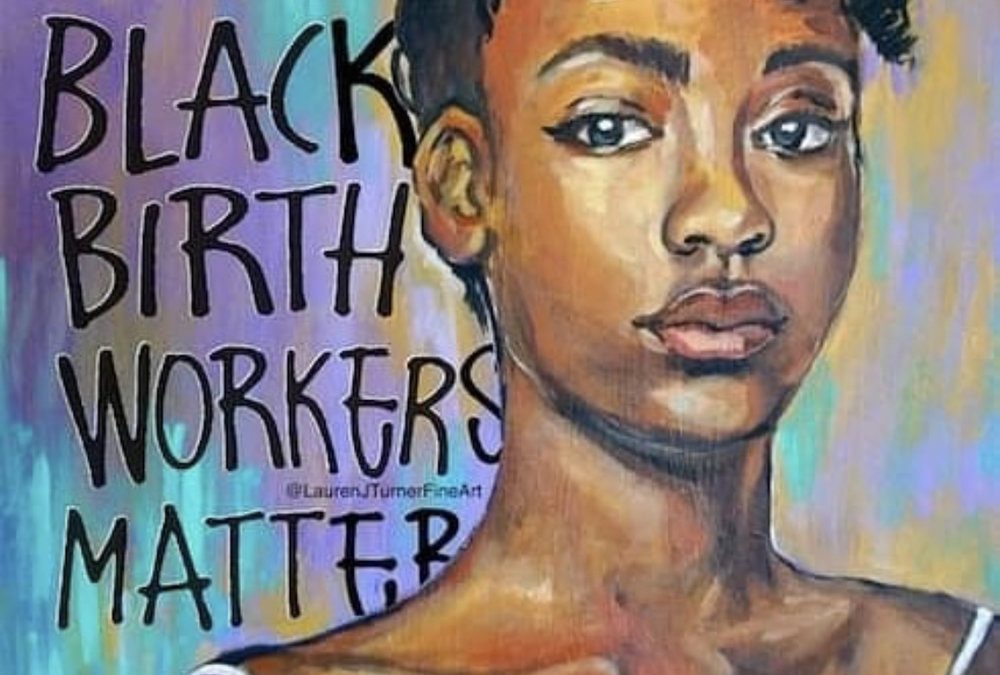As a black doula in Wilmington, providing an inclusive practice has remained of the utmost importance in my line of work. Luckily, our city has several opportunities for support around birth for minority communities, and diversity in the local birth working community is ever growing. Some of these top-notch groups are:
*The following article is comprised of excerpts and findings collected from the Center for American Progress
Black women and American Indian/Alaska Native women are three to four times more likely than non-Hispanic white women to die from pregnancy-related causes—during pregnancy, birth, and up to one year postpartum. What’s more, Black women are twice as likely as non-Hispanic white women to experience severe maternal morbidity, or life-threatening pregnancy-related complications, which affect 50,000 women in the United States each year. Studies also show higher rates of severe maternal morbidity for Hispanic women compared with non-Hispanic white women. And while there is a severe lack of data around the experiences and outcomes of LGBTQ birthing people, particularly for transgender individuals, the discrimination faced by these communities in accessing pregnancy-related care, and health care more broadly, is well documented.
Restrictions on home births and midwives’ ability to legally practice with autonomy, as well as a lack of sufficient insurance reimbursement and Medicaid coverage, put midwifery care out of reach for many birthing people, particularly low-income people and people of color, who are most at risk for poor maternal health outcomes. In addition, a lack of integration of midwifery into the health care system creates challenges for collaboration with hospitals to identify good candidates for midwifery care and facilitate smooth transfers if medical intervention is needed.
The support of a midwife or doula is seen by some as a luxury reserved for wealthier white women, and it is often true that their services are inaccessible for low-income people and people of color. Yet doulas and midwives of color and those who are LGBTQ, as well as many from low-income communities, are leading the work to provide access to culturally competent prenatal, birth, and postpartum care and support for their communities. Expanding access to midwives and doulas, especially those who are part of the communities they support, can significantly improve the health and birthing outcomes and experiences of people of color and LGBTQ people. Both midwives and doulas are associated with improved maternal health outcomes and lower rates of medical intervention in birth. Doulas provide critical advocacy and support, especially for those at risk of bias and discrimination—including people of color and LGBTQ people.
As policymakers bring increased focus on the role of doulas and midwives in improving maternal health outcomes, this report seeks to share the experience and views of the people doing the work. This report is informed by interviews with doulas and midwives who are predominantly Black, Latinx, Indigenous, and LGBTQ and who serve the communities they represent. Community-based doulas and midwives, while not the lone solution to the maternal health crisis, have crucial roles to play in improving outcomes and experiences for communities most affected by discrimination and disparities in health outcomes. The information and perspectives shared by the doulas and midwives interviewed for this report fall under three main areas: the role and importance of community-based birth workers and the recentering of community and humanity in pregnancy-related care; guidelines for health care system integration and the role of government; and the creation of a progressive vision for pregnancy-related care in the United States. Under each issue area, those interviewed outlined the following principles as being critical to their role and to addressing the maternal health crisis more broadly:
- The recentering of community and humanity in pregnancy-related care
- Interrupt the harm to birthing people, particularly those from vulnerable communities, from exploitation, exclusion, discrimination, and a loss of autonomy in the medical system.
- Build power and autonomy through relationships of trust and restoring community birthing knowledge.
- Center the whole person in pregnancy-related care through wraparound support during the prenatal and postpartum periods.
- Guidelines to successfully integrate doulas and midwives into the health care system and the role of government
- Ensure provider education that includes a focus on racism and bias along with collaboration and respect for the work of doulas and midwives.
- Reframe birth as not an inherently medical procedure.
- Establish policies that support existing community-based organizations and birth workers already doing the work; include birth workers of color; value traditional birth knowledge; and preserve the autonomy of midwives and doulas.
- Policy recommendations to achieve a progressive vision for pregnancy-related care
- Provide patient- and community-centered care with access to a range of birth options, including midwifery and doula care, that are affordable and ensure a living wage for doulas and midwives.
- Protect the autonomy and self-determination of both pregnant people and birth workers.
*The previous article is comprised of excerpts and findings collected from the Center for American Progress
While the city of Wilmington, NC has a long way to go, the efforts to eliminate these disparities show a strong beginning to equity in maternal health and the support of birthing people everywhere.


Recent Comments